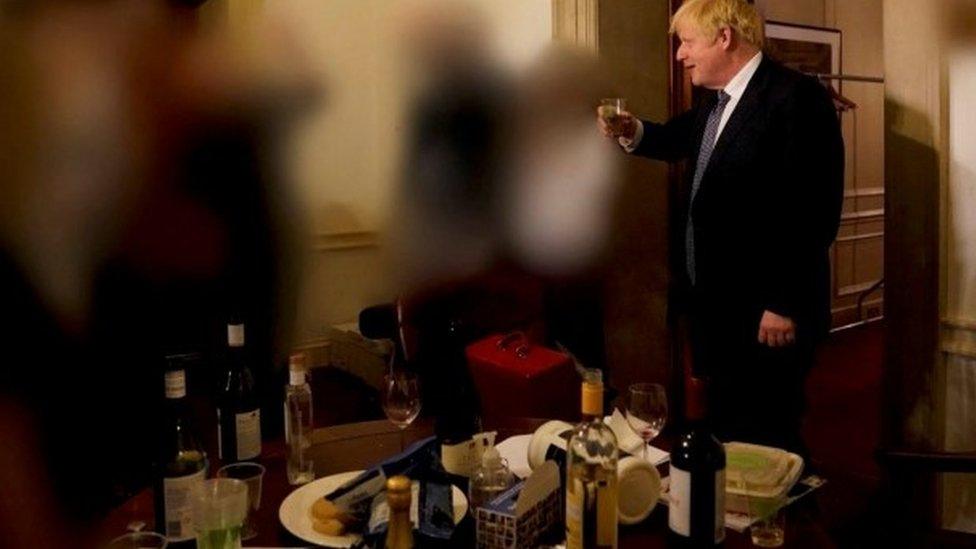Sue Gray: The Partygate investigator and civil servant
- Published
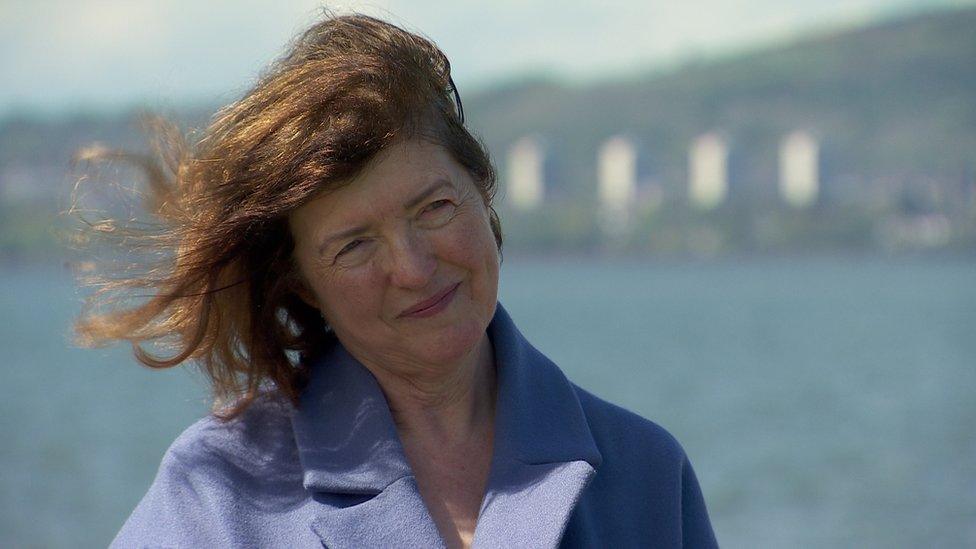
Former senior civil servant Sue Gray, who became a household name as the Partygate investigator, has been cleared to take up a job with Labour from September.
Ms Gray's critical report into lockdown gatherings in Downing Street prompted numerous Conservative MPs to call on Boris Johnson to resign and contributed to his downfall last year.
Some Tory MPs have expressed anger at the job offer to Ms Gray, with allies of the former prime minister saying it undermines her report.
The independent Advisory Committee on Business Appointments (Acoba) has recommended a six-month break from when she quit as an official in March.
But the government is expected to rule Ms Gray broke civil service rules by failing to declare her contact with Labour leader Sir Keir Starmer while still in her former role.
Having worked in the civil service since 1970s, Ms Gray has vast experience of government and would be useful to Sir Keir, who along with many in his shadow cabinet, has never held a ministerial position.

'A lady called Sue'
In his memoir, Liberal Democrat former minister David Laws recalls being told by a colleague: "It took me precisely two years before I realised who it is that runs Britain.
"Our great United Kingdom is actually entirely run by a lady called Sue Gray, the head of ethics or something in the Cabinet Office - unless she agrees, things just don't happen."
Ms Gray joined the civil service straight from school and worked her way up to the Cabinet Office where, for six years, she led the government's Propriety and Ethics team, which provides advice to departments on standards issues.
Polly Mackenzie - who worked as a special adviser in the Cabinet Office - told the BBC's Profile programme in 2017: "Sue has been there for so long, she knows everything that anybody has ever done wrong."
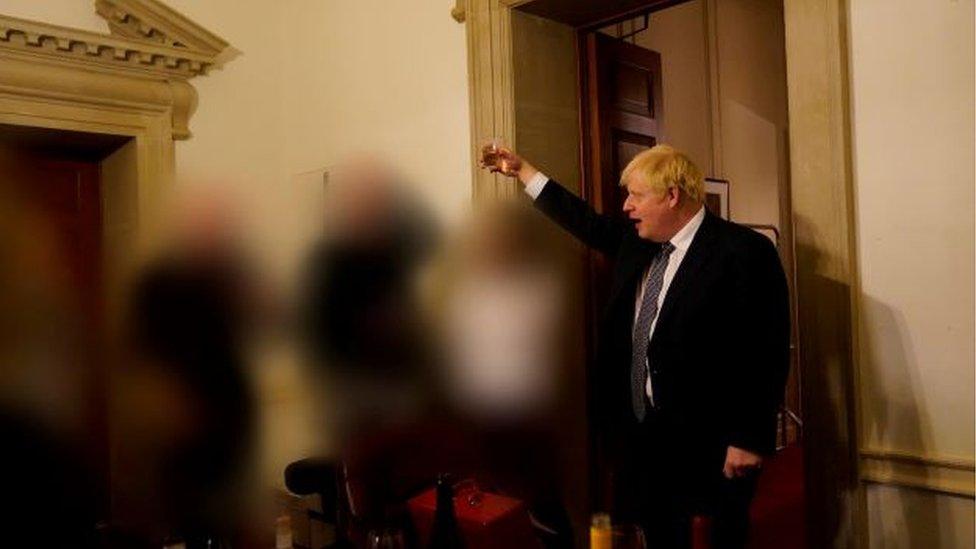
A photo released with the Partygate report of Mr Johnson at a gathering in No 10 Downing Street
Gus O'Donnell, a former head of the civil service, said: "If there is any one person in the civil service who could write their memoirs, hers would be the most valuable, the most priceless and the most sensational.
"I am extremely confident that such a memoir will never be written - her secrets will go to the grave."
In 2017, one of her investigations forced Damian Green - then one of Theresa May's most senior ministers - to step down after he was found to have made "inaccurate" statements over what he knew about claims pornography had been found on his office computer in 2008.
She also investigated claims of sexual misconduct by the minister towards journalist Kate Maltby, ruling that her claims had been "plausible".
Speaking to the BBC, Ms Maltby said: "What impressed me most about Sue Gray was how seriously she took her duty of care to complainants... she was determined to listen to junior people, and not let senior staff off the hook.
"I found her profoundly moral in a way that isn't normally seen in Westminster."
'Disrupter'
Ms Gray's knowledge of ministers' private interests is said to have been useful to prime ministers carrying out rejigs of their team.
Chris Cook - an ex-BBC journalist who now works for news website Tortoise - said one sign of a forthcoming reshuffle would be when Sue Gray's office furniture had been re-arranged.
After 20 years, she left the Cabinet Office on secondment to work at the finance department in Northern Ireland's government.
When a job to lead the Northern Ireland civil service became available she applied, but did not get it.
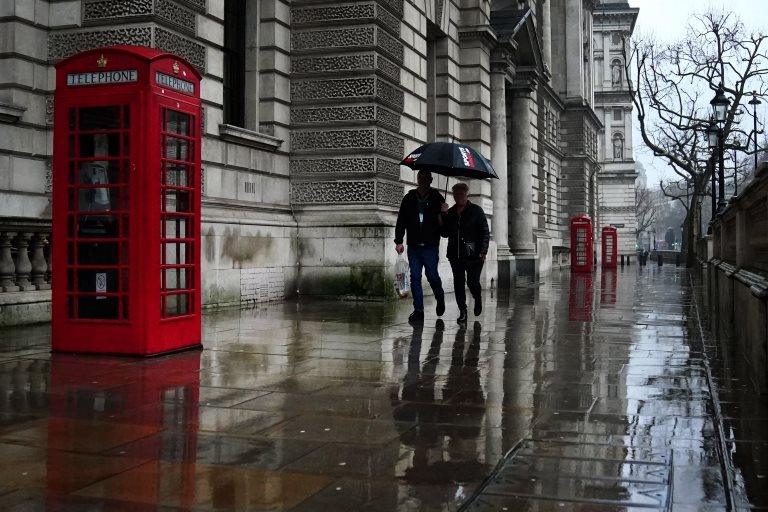
Ms Gray has spent much of her career in the government buildings of Whitehall
Unusually for a normally private individual, she gave an interview to the BBC admitting she was "disappointed" she did not get the top job and suggested she may have been seen as "too much of a challenger, or a disrupter".
In 2021, she returned to the Cabinet Office leading on matters related to the Union and the constitution.
She may have spent the bulk of her career in the civil service, but in the late 1980s she did take a career break to run a pub near Newry in County Down, called the Cove Bar, along with her husband, country and western singer Bill Conlon.
She told the BBC: "I loved it, loved it at the time, I'd never do it again."
Partygate
In 2021, Ms Gray was catapulted into the limelight when she was given the task of investigating whether Covid rules had been followed in government during the pandemic.
Her final report concluded that staff had partied in Downing Street while the rest of the UK was in lockdown, with the approval of their bosses.
She said many events "should not have been allowed", and then-Prime Minister Mr Johnson "must bear responsibility".
Ms Gray made headlines again when, on 1 March, reports emerged that Labour leader Sir Keir was considering appointing Ms Gray to be his chief of staff.
The following day, Ms Gray quit her job at the levelling up department and Labour subsequently confirmed it had made her a job offer.
Cabinet Office minister Jeremy Quin has suggested this could have breached rules which say civil servants should "act in a way which deserves and retrains the confidence of ministers".
He also said talks between Labour and Ms Gray could potentially have conflicted with a requirement for civil servants to clear with ministers contact with opposition parties.
Related topics
- Published3 March 2023
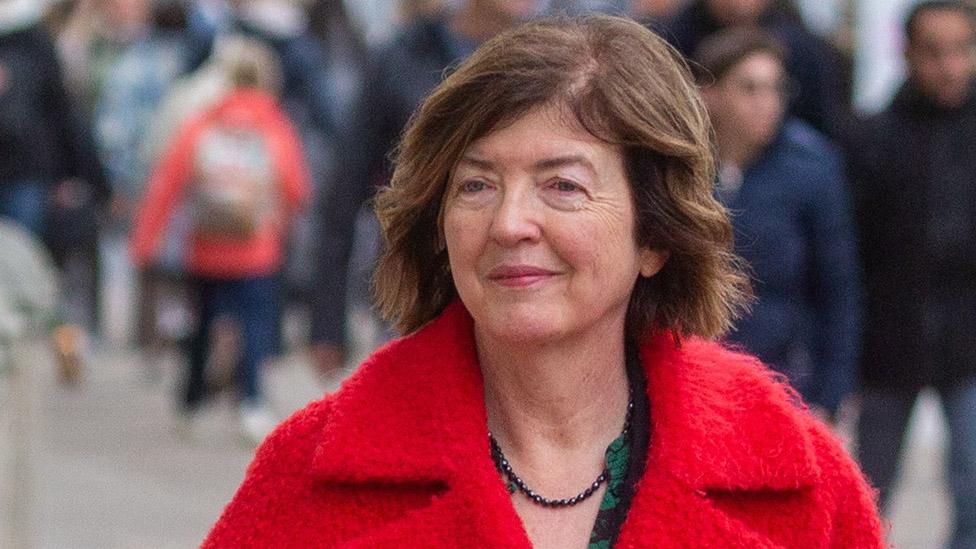
- Published20 May 2021
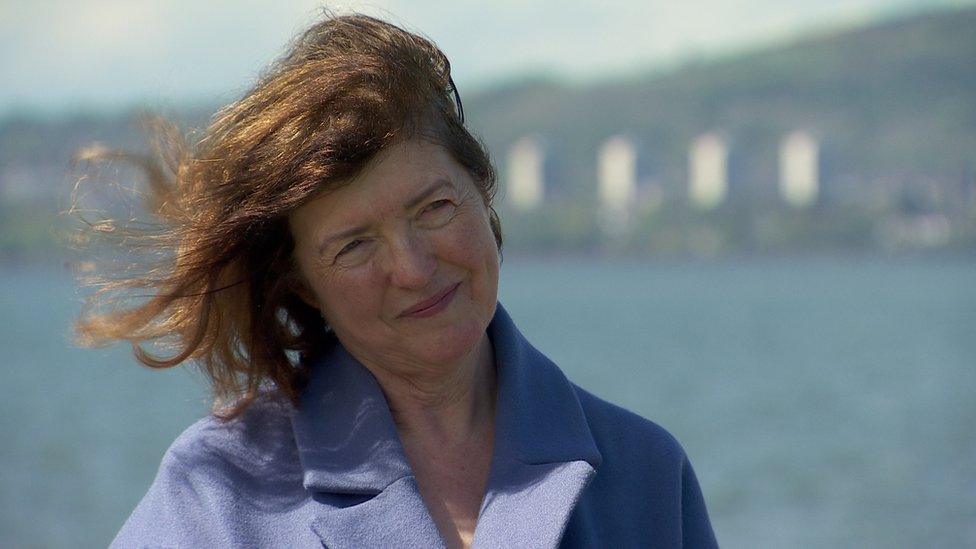
- Published18 December 2021
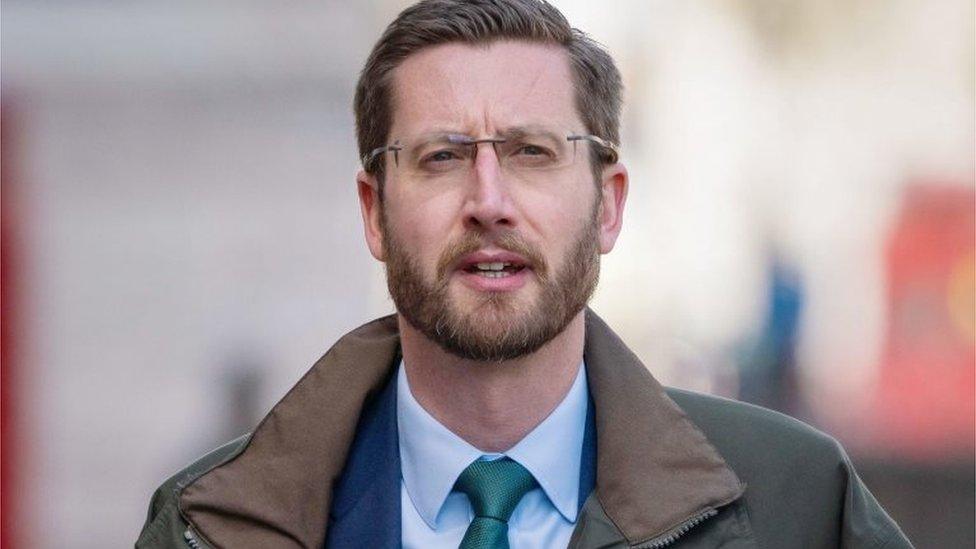
- Published2 May 2023

- Published25 May 2022
